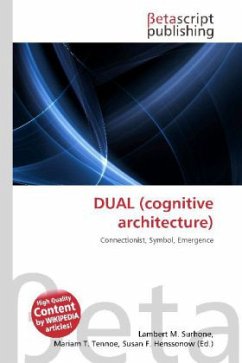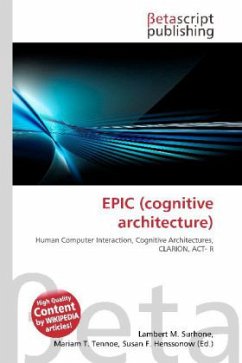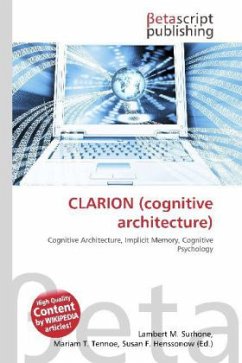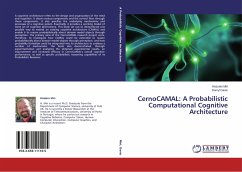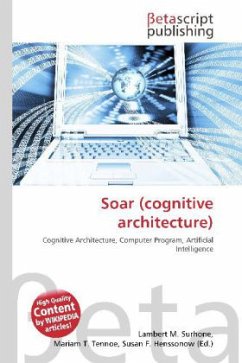
Soar (cognitive architecture)
Versandkostenfrei!
Versandfertig in 6-10 Tagen
26,99 €
inkl. MwSt.

PAYBACK Punkte
13 °P sammeln!
Please note that the content of this book primarily consists of articles available from Wikipedia or other free sources online. Soar is a symbolic cognitive architecture, created by John Laird, Allen Newell, and Paul Rosenbloom at Carnegie Mellon University, now maintained by John Laird''s research group at the University of Michigan. It is both a view of what cognition is and an implementation of that view through a computer programming architecture for Artificial Intelligence (AI). Since its beginnings in 1983 and its presentation in a paper in 1987, it has been widely used by AI researchers...
Please note that the content of this book primarily consists of articles available from Wikipedia or other free sources online. Soar is a symbolic cognitive architecture, created by John Laird, Allen Newell, and Paul Rosenbloom at Carnegie Mellon University, now maintained by John Laird''s research group at the University of Michigan. It is both a view of what cognition is and an implementation of that view through a computer programming architecture for Artificial Intelligence (AI). Since its beginnings in 1983 and its presentation in a paper in 1987, it has been widely used by AI researchers to model different aspects of human behavior. The main goal of the Soar project is to be able to handle the full range of capabilities of an intelligent agent, from highly routine to extremely difficult open-ended problems. In order for that to happen, according to the view underlying Soar, it needs to be able to create representations and use appropriate forms of knowledge (such as procedural, declarative, episodic). Soar should then address a collection of mechanisms of the mind.



